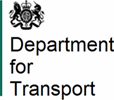
18 Jul 2024
Public ownership of rail takes centre stage as Government plans radical overhaul of transport
- Legislation introduced today to bring the UK’s railways back into public ownership – putting transport at the heart of this mission-led Government
- Move marks the biggest overhaul of the sector in a generation
- Transport Secretary: “first steps towards rail reform are being taken today”
Passengers across the country will have better train services thanks to a new transport bill set out in the King’s Speech.
The Passenger Railway Services (Public Ownership) Bill has been introduced to Parliament today (18 July).
After years of unacceptably low performance, the bill is a landmark change that will allow the Government to bring rail passenger services back into public ownership, amending legislation to make appointing a public sector operator the default, rather than a last resort.
Transport Secretary Louise Haigh said:
“This is a clear signal of intent. Rail reform is at the heart of this King’s Speech.
“As Passenger-in-Chief, I said we’d move fast and fix things and that’s exactly what we’re doing with this weighty, radical legislative agenda.
“Our transport system is broken, but today’s bill will pave the way for better trains that work for everyone, no matter where you live.
“After years of inefficiency, we’re two weeks in and the first steps towards rail reform are being taken today. Change starts now.”
Our railways are essential in ensuring connectivity for all kinds of people across the country and unlocking their full potential is essential to growing the economy and lowering emissions from transport.
The privatisation model is failing passengers day-in, day-out. Publicly-owned passenger rail will put an end to years of waste and fragmentation on our railways and establish a more efficient, higher quality and reliable service.
The new laws will ensure rail services are run with the passenger put first.
With five bills, transport has the biggest legislative agenda, with plans to deliver the biggest overhaul to transport in a generation.
The transport bills set out in the King’s Speech will be essential to delivering the Prime Minister’s missions for Government, and will be mission critical for kickstarting economic growth, unlocking opportunities across the country, and accelerating to net zero.
The commitments also see the Transport Secretary delivering on her strategic priorities set out last week.
Contact Information
Simrah Basit
Press Officer
DfT
Simrah.Basit@dft.gov.uk
Notes to editors
Further details of other transport bills set out in the King’s Speech:
- The Railways Bill will create a unified, simplified rail system – instead of the current fragmented, expensive network. Great British Railways will manage the network and the delivery of passenger services under one public rail body. Led by industry experts, it will relentlessly focus on ensuring reliability, affordability, efficiency, quality, accessibility and safety for passengers, and save the taxpayer millions of pounds. The Bill will also pave the way for a powerful new watchdog, the Passenger Standards Authority, to independently monitor standards and champion improvement across passenger services.
- The Better Buses Bill will transform bus services up and down the country by delivering new powers for all local leaders to take back control of local services, either through public ownership or through bus franchising - following in the footsteps of Greater Manchester’s successful ‘Bee Network’. The Bill will boost reliability and finally call time on the failed system of deregulation that has seen service levels plummet. It will also help bring an end to the postcode lottery of bus services, putting power over services back in the hands of the communities that rely on them.
- The High Speed Rail (Crewe-Manchester) Bill will be re-introduced to the new Parliament, bringing forward the powers necessary to deliver on wider plans for greater rail connectivity across the north of England. It will be used to deliver rail infrastructure that works for the whole country and achieve the Government’s priorities of improving productivity, driving economic growth and tackling regional inequality.
- The Sustainable Aviation Fuel (SAF) (Revenue Support Mechanism) Bill will be introduced to back SAF production in the UK. The bill aims to boost greener flying and support an industry estimated to add over £1.8 billion to the economy and support over 10,000 jobs by 2030. To champion growth, attract investment and support jobs, the bill will introduce a revenue certainty mechanism – designed to reduce risk for the sector as it scales up SAF production. This builds on the Government’s SAF mandate, which will create demand by ensuring 10 per cent of all jet fuel is SAF by 2030.
